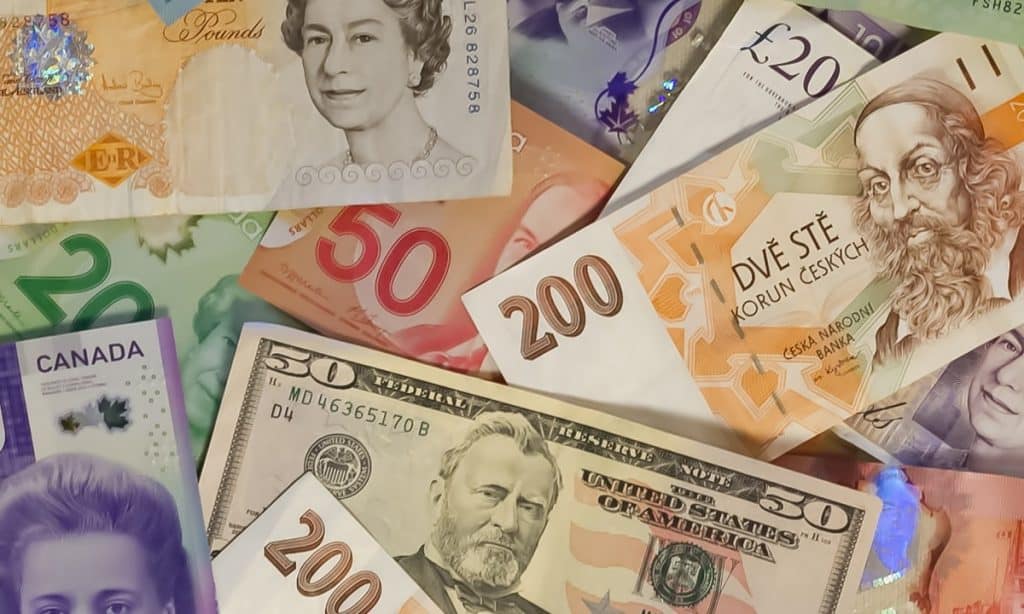
With more than five fintechs tripling their valuations in recent months, is it safe to say that once is chance, twice is a coincidence and the third time is a pattern?
This year so far has seen some of the biggest fintech funding rounds in history, with some of the biggest names in fintech picking up billions of dollars worth of VC funding.
In the first quarter of 2021 alone, UK fintechs raised more than $2.9bn in funding, an increase of 331 per cent on the same period in the year before.
But, with these massive funding rounds also come increasingly higher valuations, more often than not fintechs see their valuations increase substantially, by up to three times in some cases.
So, why is this happening? Is it just a new trend in fintech as companies continue to get bigger and more established?
AltFi spoke to Mina Mutafchieva, principal at Dawn Capital, and Vinoth Jayakumar, partner at Draper Espirit, to get to the bottom of it.
Payments make the world go round
In June 2020, Checkout.com became one of the first fintechs to triple its valuation, following a $150m Series B fundraising effort.
Come January of this year, Checkout.com’s valuation had jumped from the $5.5bn it reached in June 2020, up to $15bn, nearly tripling for the second time.
The payment processor experienced record growth over the past 12 months thanks to consumers turning to online shopping in light of lockdowns across the globe.
“The penetration of e-commerce accelerated by about three years in 2020,” Mina Mutafchieva, principal at Dawn Capital told AltFi.
“This insane growth advanced categories by two, three years and as these sectors grew so did the companies in that sector. This growth is just a reflection of really really high growth driven by the trend of less cash and e-commerce growing really fast.”
Within the first few days of lockdown 1.0 back in 2020, cash usage had already halved in the UK. Now, digital payment methods, like Apple Pay or Google Pay, are the most popular way to pay, all methods that payments fintechs can help bolster.
Once is chance, twice is coincidence and third time is a pattern
Checkout.com is not the only payment provider to have seen its valuation triple.
“There’s been a shift from B2C to B2B investment specifically in terms of financial infrastructure software and infrastructure either into banks or merchants,” Vinoth Jayakumar, partner at Draper Espirit, told AltFi.
Payment infrastructure provider Stripe became the highest valued fintech in the world once again following a $600m raise in March and saw its valuation skyrocket to $95bn, 2.6 times its previous valuation and making it one of the highest valued private companies in the world.
“There’s an eternal appetite for liquidity and if you’re an investor in Stripe and you know the price is much higher than when you first got involved you also have no rush for it to go public,” Jayakumar went on.
“The question now is if you need the private market to help your growth or is your growth trajectory apparent enough that it won’t actually make a difference and being public might accelerate your growth because you become involved with other kinds of investors who can help you scale.”
Similarly, financial API provider Plaid, which recently nixed a $5.3bn takeover deal from Visa, raised fresh capital at a much higher valuation.
The fintech’s valuation jumped from $5.3bn to $13.6 in April 2021, two and a half times higher than its previous price tag.
Mutafchieva explained: “If a company is operating at a level two, three times higher than it was at its previous fundraise then it makes total sense that the valuation reflects that. The valuation of a company is obviously linked to its usage and growth.”
“Nowadays, payments companies are just growing faster, so revenues are higher and their true value is also higher because customer growth has this compounding effect of these multiples increasing as well as the growth,” she added.
Show me the money
It’s not just payments fintechs having their time in the sun.
Klarna, the biggest buy-now-pay-later fintech in the world is also a member of the elite triple valuation group.
The BNPL fintech closed one of the biggest rounds fintech has ever seen earlier on this year, scooping a $1bn funding round in March at a $31bn valuation, just under triple its $10.65bn valuation from its previous raise in September 2020.
“Klarna is everywhere. Every site I go on has the option to checkout with Klarna. It has a really smart distribution model, they can reach every digital customer with its B2B to B2C distribution,” said Mutafchieva.
The Swedish fintech currently counts more than 90m people worldwide as customers, including 14m here in the UK alone.
Another fintech to have tripled its valuation not in the payments space is Wealthsimple.
The Canadian investment platform closed a C$750m (£439m) funding round and saw its valuation jump from $1.5bn up to $5bn— a valuation more than 3 times higher.
Similar to payments and ecommerce, trading and investment platforms have only gone from strength to strength during the pandemic as people turned to trading in lockdown.
Still on the fence
Despite the growing number of fintechs tripling their valuations, it could still be just one of those anomalies we see in the wonderful world of fintech.
“I think the tripling might be a coincidence as opposed to anything else,” Jayakumar said. “It’s really just the way the market is moving at the moment and investors are simply paying for growth and paying up to significant multiples.”
Amidst everything that has happened over the last year or so, certain areas of fintech have outperformed expectations, resulting in their higher-than-expected valuations.
However, with a growing catalogue of evidence, it’s hard to ignore the trend for much longer.
With more funding record-breaking funding rounds just on the horizon, it’ll be interesting to see which fintech will be the next to triple its valuation.
